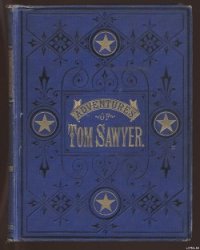Английский язык с Марком Твеном. Принц и нищий (Mark Twain. The Prince and the Pauper) - Twain Mark (читать хорошую книгу полностью .txt) 📗
'I see you feel my atmosphere! There's awe in your face! None may be in this atmosphere and not be thus affected; for it is the very atmosphere of heaven. I go thither and return, in the twinkling of an eye. I was made an archangel on this very spot, it is five years ago, by angels sent from heaven to confer that awful dignity. Their presence filled this place with an intolerable brightness. And they knelt to me, king! yes, they knelt to me! for I was greater than they. I have walked in the courts of heaven, and held speech with the patriarchs. Touch my hand — be not afraid — touch it. There — now thou hast touched a hand which has been clasped by Abraham, and Isaac, and Jacob! For I have walked in the golden courts, I have seen the Deity face to face!' He paused, to give this speech effect; then his face suddenly changed, and he started to his feet again, saying, with angry energy, 'Yes, I am an archangel; a mere archangel! — I that might have been pope! It is verily true. I was told it from heaven in a dream, twenty years ago; ah, yes, I was to be pope! — and I should have been pope, for Heaven had said it — but the king dissolved my religious house, and I, poor obscure unfriended monk, was cast homeless upon the world, robbed of my mighty destiny!' Here he began to mumble again, and beat his forehead in futile rage, with his fist; now and then articulating a venomous curse, and now and then a pathetic 'Wherefore I am naught but an archangel — I that should have been pope!'
So he went on for an hour, while the poor little king sat and suffered. Then all at once the old man's frenzy departed, and he became all gentleness. His voice softened, he came down out of his clouds, and fell to prattling along so simply and so humanely, that he soon won the king's heart completely. The old devotee moved the boy nearer to the fire and made him comfortable; doctored his small bruises and abrasions with a deft and tender hand; and then set about preparing and cooking a supper — chatting pleasantly all the time, and occasionally stroking the lad's cheek or patting his head, in such a gently caressing way that in a little while all the fear and repulsion inspired by the archangel were changed to reverence and affection for the man.
This happy state of things continued while the two ate the supper; then, after a prayer before the shrine, the hermit put the boy to bed, in a small adjoining room, tucking him in as snugly and lovingly as a mother might; and so, with a parting caress, left him and sat down by the fire, and began to poke the brands about in an absent and aimless way. Presently he paused; then tapped his forehead several times with his fingers, as if trying to recall some thought which had escaped from his mind. Apparently he was unsuccessful. Now he started quickly up, and entered his guest's room, and said:
'Thou art king?'
'Yes,' was the response, drowsily uttered.
'What king?'
'Of England.'
'Of England. Then Henry is gone!'
'Alack, it is so. I am his son.'
A black frown settled down upon the hermit's face, and he clenched his bony hands with a vindictive energy. He stood a few moments, breathing fast and swallowing repeatedly, then said in a husky voice:
'Dost know it was he that turned us out into the world houseless and homeless?'
There was no response (ответа не было). The old man bent down (старик склонился; to bend — гнуть(ся)) and scanned the boy's reposeful face (и рассматривал спокойное лицо мальчика) and listened to his placid breathing (и слушал его мирное дыхание). 'He sleeps (он спит) — sleeps soundly (спит крепко)'; and the frown vanished away (и мрачная тень исчезла прочь) and gave place to an expression of evil satisfaction (и уступила место выражению злобного удовлетворения; to give — давать). A smile flitted across the dreaming boy's features (улыбка промелькнула через чертах = по лицу дремлющего мальчика). The hermit muttered (отшельник пробормотал), 'So (вот) — his heart is happy (его сердце счастливо)'; and he turned away (и он отвернулся прочь). He went stealthily about the place (он ходил украдкой = тихо по помещению; to go — ходить), seeking here and there for something (ища здесь и там что-то); now and then halting to listen (время от времени: «сейчас и тогда» останавливаясь послушать), now and then jerking his head around (время от времени вертя головой кругом) and casting a quick glance toward the bed (и кидая быстрый взгляд на кровать); and always muttering, always mumbling to himself (и постоянно ворча, постоянно бормоча себе = под нос). At last he found what he seemed to want (наконец он нашел то, что, казалось, хотел; to find — найти; to seem — казаться) — a rusty old butcher-knife and a whetstone (ржавый старый мясницкий нож и точильный камень). Then he crept to his place by the fire (затем он пробрался к своему месту у огня; to creep — ползти), sat himself down (уселся: «усадил себя вниз»), and began to whet the knife softly on the stone (и начал точить нож тихо о камень), still muttering, mumbling, ejaculating (все еще ворча, бормоча, восклицая). The winds sighed around the lonely place (ветры вздыхали вокруг уединенного места), the mysterious voices of the night floated by (таинственные голоса ночи проплывали мимо) out of the distances (издалека: «из далей»). The shining eyes of venturesome mice and rats (блестящие глаза отважных/готовых на риск мышей и крыс; to venture — отважиться, решиться; осмелиться) peered out at the old man (уставились на старика) from cracks and coverts (из щелей и укрытий), but he went on with his work (но он продолжал свою работу; to go on — продолжать: «идти дальше»), rapt, absorbed (увлеченный, поглощенный), and noted none of these things (и не замечал ни одной из этих вещей).
At long intervals (через длинные интервалы = изредка) he drew his thumb (он проводил большим пальцем; to draw — тащить) along the edge of his knife (по лезвию своего ножа), and nodded his head with satisfaction (и кивал головой с удовлетворением). 'It grows sharper (он становится острее),' he said (он сказал); 'yes, it grows sharper (да, он становится острее).'
He took no note of the flight of time (он не замечал полета = течения времени; to take note — обращать внимание: «брать заметку»), but worked tranquilly on (но работал спокойно дальше), entertaining himself with his thoughts (развлекая себя своими мыслями), which broke out occasionally in articulate speech (которые прорывались иногда в членораздельной речи):
'His father wrought us evil (его отец причинил нам зло; to work — работать, делать), he destroyed us (он уничтожил = погубил нас) — and is gone down into the eternal fires (и сошел вниз в вечное пламя)! Yes (да), down into the eternal fires (вниз в вечное пламя)! He escaped us (он ушел от нас; to escape — сбежать) — but it was God's will (но это была Божья воля), yes it was God's will (да, это была Божья воля), we must not repine (мы не должны роптать). But he hath not escaped the fires (но он не избежал пламени)! no, he hath not escaped the fires (нет, он не избежал пламени), the consuming, unpitying, remorseless fires (всепожирающего, безжалостного, беспощадного пламени) — and they are everlasting (а оно вечно)!'
And so he wrought (и так он работал; to work — работать); and still wrought (и еще работал); mumbling (бормоча; to mumble) — chuckling a low rasping chuckle at times (посмеиваясь тихим дребезжащим смешком временами) — and at times breaking again into words (а временами разражаясь словами; to break into — разразиться: «ломать в, вломиться»):
'It was his father that did it all (это был его отец, который сделал это все; to do — делать). I am but an archangel (я только архангел) — but for him, I should be pope (но, если бы не он, я должен был бы быть = был бы Папой)!'
The king stirred (король пошевелился). The hermit sprang noiselessly (прыгнул бесшумно; noise — шум) to the bedside (к кровати; side — сторона), and went down upon his knees (и опустился на свои колени; to go down — опуститься: «пойти вниз»), bending over the prostrate form (согнувшись над лежащим телом) with his knife uplifted (со своим ножом, поднятым вверх). The boy stirred again (мальчик пошевелился снова); his eyes came open for an instant (его глаза открылись на мгновение; to come open — стать открытыми), but there was no speculation in them (но не было никакого размышления в них), they saw nothing (они не видели ничего; to see — видеть); the next moment his tranquil breathing showed (в следующий момент его спокойное дыхание показало) that his sleep was sound (что его сон был крепким) once more (опять).




